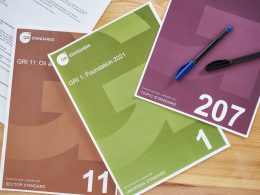The IFRS Foundation has unveiled a suite of free e-learning modules designed to help companies and stakeholders build foundational knowledge of the International Sustainability Standards Board (ISSB)’s disclosure requirements. The modules are available via the IFRS Sustainability Knowledge Hub and focus on the IFRS S1 and IFRS S2 standards.
The new resources are intended to assist companies in preparing for sustainability-related financial disclosures aligned with global investor expectations. The self-paced modules feature a mix of written and visual content, interactive exercises, and short assessments. Successful completion of the assessment entitles users to a certificate.
The four modules include:
- Introduction to the IFRS Sustainability Disclosure Standards
- Introduction to IFRS S1: General Requirements for Disclosure of Sustainability-related Financial Information
- Introduction to IFRS S2: Climate-related Disclosures
- Integrated Sustainability Disclosures and Organisational Considerations
Vice-Chair of the ISSB, Sue Lloyd, said the new e-learning content responds to growing demand for practical tools to support the adoption of ISSB standards globally.
“We understand the need for accessible, practical resources to help preparers understand and apply IFRS S1 and IFRS S2,” said Lloyd.
“This e-learning course, along with our library of educational materials, will help equip individuals with the knowledge they need to implement the Standards effectively and provide globally comparable sustainability-related information for investors.”
The modules are freely accessible to users with an IFRS.org account and are eligible for CPD/CPE credits for members of recognised accounting bodies. Additional advanced learning is also available, including the FSA Credential, a two-part exam that explores the link between sustainability and financial performance.
The e-learning launch forms part of the IFRS Foundation’s wider efforts to promote consistent global uptake of ISSB standards and strengthen transparency in sustainability reporting.














